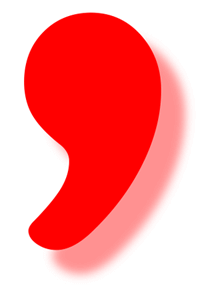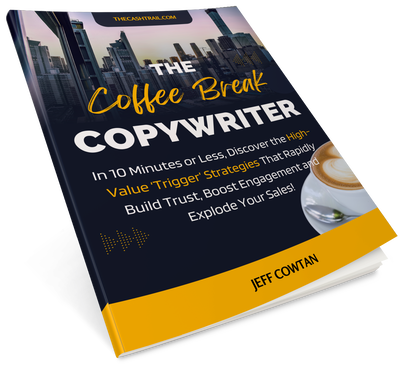I often hear people say they wish they were a better writer but don’t know how to go about being one.
It’s a shame really because, with a bit of practise it’s actually quite easy!
In this post I’ve got 12 simple tips that’ll help anyone with a desire to put pen to paper (or fingers to keyboard) and improve how they can get their beautiful words out into the wonderful world that awaits them.
Who knows? If there’s something in your head the world could benefit from, writing about it might just end up taking your life in a whole new direction!
Let’s dive in…
Tip #1 – Do more of it!
It might seem like ‘stating the bleeding obvious’ but like everything, the more you practise, the better you get at it. So the first tip’s simple…
Do more of it, even if you have no specific reason to do so.
As they say “keep writing and carry on” (they don’t really say that, I’ve just made it up but it sounds good)!
Tip #2 – Start a blog
There are plenty of good reasons to start a blog, in fact even if you’ve never done anything like it before, becoming a blogger can lead to all kinds of new possibilities which you may never even have thought of yet.
One thing’s for sure though, as long as you keep at it, your writing skills will improve as you gain experience.
Not only that but blogging can also provide a great secondary (or primary) income once you become good at it so it’s a win all round!
Tip #3 – Don’t waffle!
So many writers ramble on and on and then end up losing their readers who’d rather go and watch paint dry!
Seriously, if you’ve got a lot to say, that’s great, fill your boots and get it all down.
But if you’re simply trying to ‘pad out’ your content to make it seem like there’s loads of substance… well don’t!
If you want to keep your readers engaged write clear, concise copy and keep the number of words to a minimum where possible.
Shorter, punchier paragraphs (ideally 2 to 3 sentences) with white space around them are much easier on the eye than large blocks of unending text, which means they’ll get read much more often.
Tip #4 – Embrace the apostrophe!

Obviously it depends on what you’re writing (a formal letter to your bank manager may require a different use of apostrophes than a sales letter or blog post) but regular use of these powerful little punctuation marks is one of the most overlooked tools a writer can have to keep the audience engaged.
Did you see how I used one in the previous paragraph?!
Basically, text that comes across as more friendly is much more likely to get read than strict, regimented prose and the good old apostrophe can really help.
For example, it’ll often sound much more ‘chatty’ to say you’ll rather than you will, or that’s instead of that is.
Here are a few more examples I use when writing sales copy (or articles for this site) which help with the flow and the message I’m trying to get across.
- It’ll as opposed to it will
- That’ll instead of that will
- There’s rather than there is
- I’m rather than I am
- I’ll instead of I will
- Don’t rather than do not
- Isn’t instead of is not
And then there’s the good old classic you’re instead of you are – and please don’t get it confused with ‘your’ which has a completely different meaning!
Of course there are others (shouldn’t, didn’t) but you get the picture.
Try it…
By using the apostrophe your writing will become more satisfying, especially as more and more people read what you’ve got to say.
A word of warning though, do your homework and use the apostrophe correctly.
If you get it wrong and use it in the wrong place or in the wrong context, it’ll stand out like a sore thumb and disengage your readers immediately.
For more information on the correct use of apostrophes check out this Grammarly page here.
Tip #5 – Make it conversational
This is almost a continuation of tip #4 (embrace the apostrophe) in as far as a conversational tone is much more enjoyable to read than a formal tone, after all, we all generally speak as if we use apostrophes in our everyday lives.
I like to imagine I’m talking to just one person when I write rather than addressing a whole audience.
It keeps things simple, sentences short and on the whole just seems friendlier.
Large blocks of text with no line breaks and few paragraphs can be likened to a one-sided monologue from a self-interested party and in general, no-one likes to be subjected to that.
A much nicer way to write is to think of it like having a decent conversation with someone where it’s a ‘two way street’ with plenty of pauses that enable each participant to join in 😊.
Tip #6 – Use copy connectors
“What’s a copy connector?” you may well ask.
Basically it’s a few words that lead nicely into a new sentence or paragraph by connecting it with the previous one.
When you think about it (when you think about it is a classic example by the way), they’re typically the sort of things we might say in conversation which really help with the flow.
They also encourage readers to continue reading without them even realising they’re being led.
Here are a few more examples to show you what I mean…
- With that said…
- While we’re on the subject…
- Best of all…
- Make no mistake…
- Here’s the thing…
- Bottom line…
The list goes on and on, in fact there are literally hundreds, possibly even thousands but once you get used to using copy connectors your writing will improve drastically because they draw your readers in to wanting more of what you’ve got to say without them even realising it!
Tip #7 – Reduce the use of the word that!
Ok you won’t be able to get rid of it completely but the word ‘that’ is way over used and can often make your sentences sound unnecessarily clunky and awkward.
Once again, it all comes down to a conversational tone.
Here’s an example.
In general which of these two sentences would you be more likely to say if you were just chatting?
“Because of certain limitations the current maximum that you can expect is about £10,000.”
“Because of certain limitations the current maximum you can expect is about £10,000.”
In the second, the word that has been removed but it makes the sentence sound ‘snappier’ and more interesting.
Of course sometimes the word that will still be needed for context but you’d be surprised how often it can be removed without anyone noticing and how a sentence can read so much better when it’s not there.
Tip #8 – Don’t worry about grammar!
I can almost feel the anger coming through my computer from those literary professors and academics who want to switch off right now!
Well let me explain.
Of course grammar IS important…
But not in the formal sense as it’s often taught in schools, colleges, universities.
Here’s a little story (absolutely true) which illustrates perfectly what I mean.
Many years ago I was a guest speaker talking about copywriting at a series of marketing seminars when, at one of them I was heckled as I got on to this very subject.
It just so happened I was discussing writing sales copy in a conversational tone and how it was absolutely fine, if not desirable in fact, to start a sentence with the words ‘and’ or ‘but’, when a member of the audience, apparently an English teacher piped up and told me I was wrong.
After a short verbal exchange which went nowhere there was a bit of a pause when suddenly he thought of something else.
“And of course there’s…” he said
Well you should have seen his face as his words dawned on him and he sheepishly sat down (to his credit he did come and apologise to me later for not ‘seeing’ at the time what I was saying)!
The point is formal grammar is important but we don’t generally speak following grammatically correct rules.
As I keep pointing out, a conversational tone tends to be more interesting and so we can afford to be a little lax when it comes to proper English!
That said, don’t mistake incorrect grammar for pore punctuation or spelling (yes I deliberatley used pore there instead of poor to make a point)!
You must make sure punctuation and spelling is correct because if it’s not, it almost jumps out the page and turns your readers right off!
Tip #9 – Be excited!
I’m sure you’d agree that in general, the main aim when you write is to get others to read what you’ve written.
This effectively means you’ve got to sell it to your audience and there’s no doubt, if you’re upbeat and enthusiastic about something, it’s much easier to sell.
Well it’s the same with writing!
Even if the subject is negative you can still write in a positive, engaging manner (especially by using the tips in this post 😊).
Bottom line, the more excited you can be over what you’re writing about, the more it’ll come across, and the more your article, post or whatever, will get read.
Tip #10 – Give it a rest!
Write, write and then write again!
Particularly when you’re producing long-form content it’s worth writing for a bit and then taking regular breaks because once you come back to it, it’s easier to expand on what you’ve written already, in order to make sure you’ve covered all the necessary elements.
Next time you sit down to write something, try it.
By giving your brain a little time off, you’ll be surprised how often you think of additional content you want to include, which all goes towards keeping your readers engaged.
Tip #11 – Edit later
Finish it then leave it!
Once you’ve got all you want to say down on paper, computer or maybe even a phone these days, it’s also worth taking a break before going back to edit it.
If you try and edit straight away, your clever little brain is so used to seeing what you’ve just been writing about, that it can easily fill in things that should be there, even though they’re not, or overlook things that are there, but shouldn’t be!
It’s almost like a ‘can’t see the wood for the trees’ scenario.
By coming back and editing after a break, you’ll be looking with fresh eyes and your brain will be in a much better place to sort out any errors and make your delightful words flow that much better.
Tip #12 – “What was that?” Oh yes, no distractions!
Wherever possible, write with no distractions.
Easier said than done I know but screaming kids, barking dogs, a bit too loud TV or even nagging partners don’t help with making your written words the best they can be!
It almost goes without saying, find a nice quiet place where you can let your creative juices flow free, follow these tips and the results will surprise you.
Conclusion
Obviously there are many aspects that make a writer great.
Different styles of writing for different types of audience means there are far too many variables to go into here and these tips won’t necessarily be suited to absolutely every kind of style there is.
But what they will do is give you an understanding of what makes an awful lot of written content that much more enjoyable to the reader.
Why not take these tips on board and have a bash?
As I said at the start of this post, you never know where it might lead. Who knows? It may take you in a direction you haven’t even thought of yet!

Who’s Jeff Cowtan? Copywriter, occasional blogger and fledgling YouTuber! As long as I can remember I felt if other people could be successful, why can’t I?! It’s why I love helping others with the same mindset as me to break away from convention and realise they don’t have to trade time for fixed amounts of money, in order to get where they want to be!

